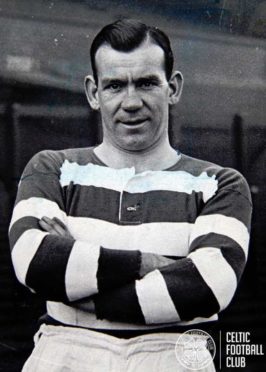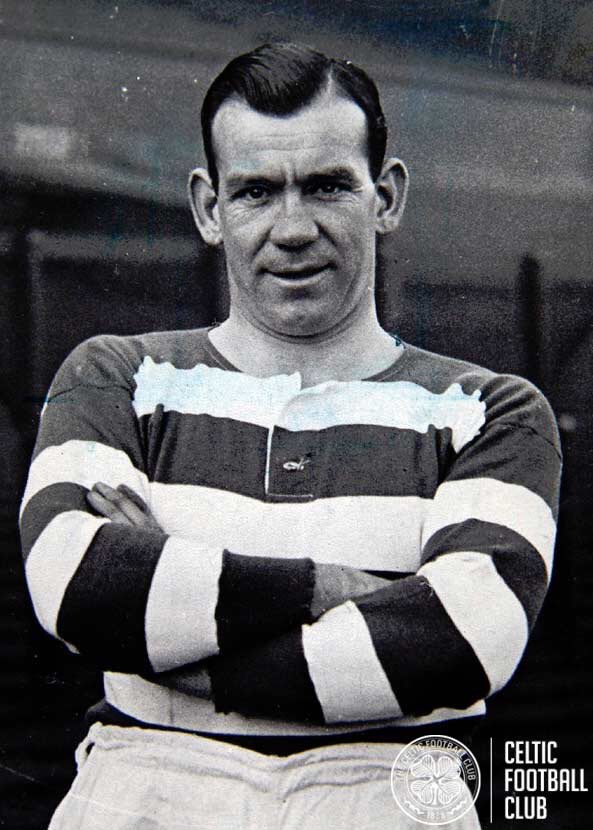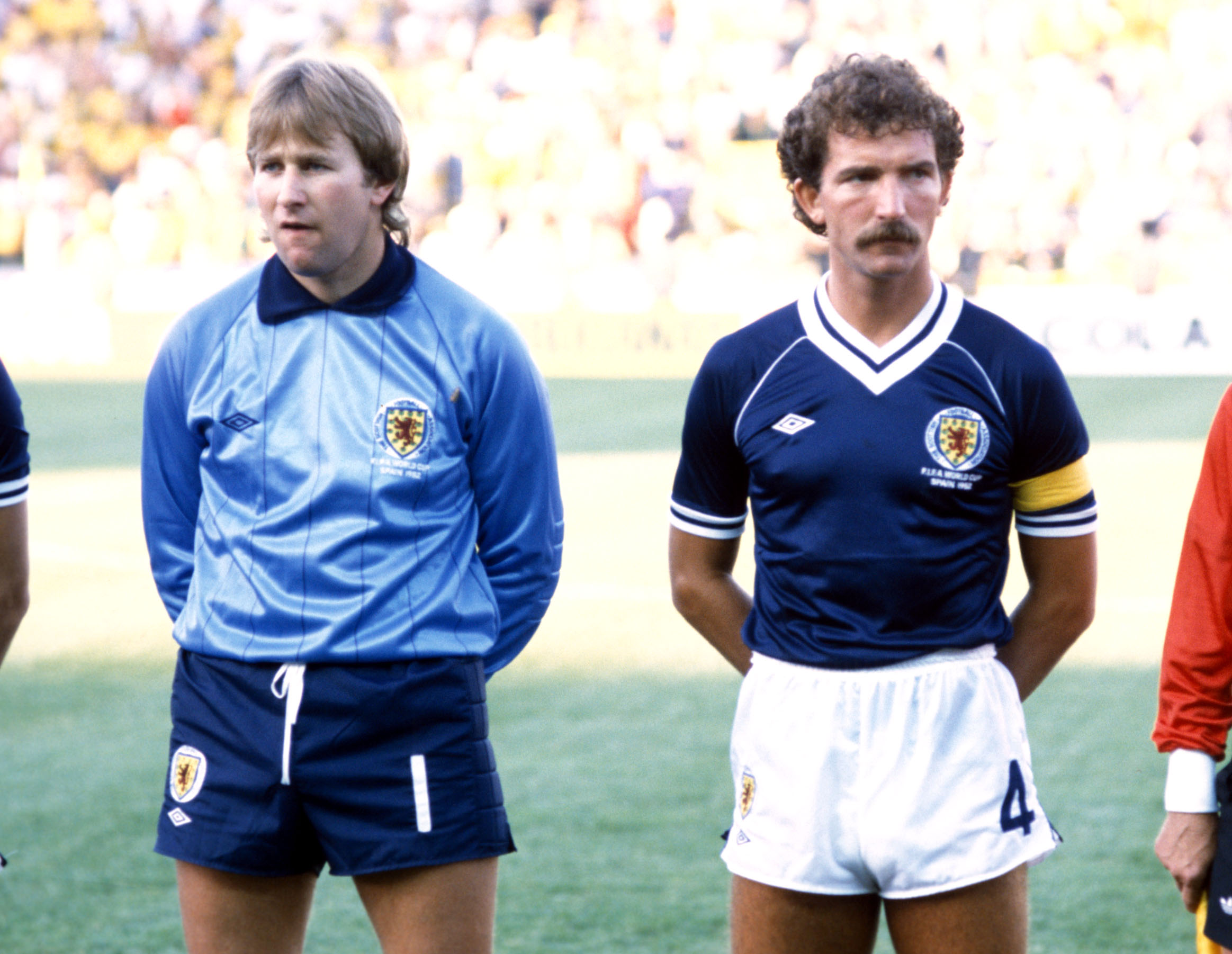The Tiddler Forbes story in February drew comment from members of his family.
Jim Skelly, in a written letter, said he “was delighted to read in BwB an article on Tiddler Forbes”.
Jim went on: “His real name was William, and he was known as Wullie, and also Poddle in addition to Tiddler.
“He was from the Overgate in Dundee and was, in fact, our uncle.
“He was our late mother Catherine’s brother. He left Dundee for London and worked for many years as a messenger at the Houses of Parliament.
“Very often in our family, his talents as a footballer were the topic of conversation.
“Living in today’s era, he would be much sought-after and no doubt would have been a very wealthy footballer!”
Jim and his wife Catherine are from Carnoustie, but used to reside in Auchterhouse, and they revealed they have one of his medals.
“We are in possession of his East Craigie medal for the 1926-27 season.
“The medal is inscribed ‘DCC winners, East Craigie FC, W Forbes’. Tiddler was a grand dribbler and a very talented man.
“In his later years, he did return to his native Dundee.”
Jim was involved in the game himself, as he revealed: “For many years, I was the manager, secretary, linesman, orange cutter-upper for Auchterhouse Hearts AFC.
“These were happy days. I have many fond memories of my time spent with a great bunch of lads, playing and training in rain, hail, snow or shine.
“We also have another famous uncle, none other than Jimmy McGrory, who played for and managed Celtic.
“I always enjoy your excellent column.”
…Rob Boag’s latest contribution sees him in a complimentary mood.
Rob, whose original tale of Tiddler Forbes, prompted today’s lead story, said: “There comes a time in all our lives when we are exiled – exiled from the past.
“We can’t go there, we can’t go back.
“That’s why we covet memories, old pictures, and stories from another time, after all, that’s what shaped us.
“Books and articles have been printed with stories, tales and pictures that are descriptive and nostalgic.
“But no other form of media has allowed its readers to travel through the porthole of time with such effect that only BwB readers can be named: Time Travellers.
“I don’t know how many years BwB has been in publication but, over these years, the colloquial stories and photographs of a Dundee that no longer exists, the tales of glory and tales of modesty and tales of what might have been require no rationale to inquire why a BwB book has not been composed.
“A sports history, interwoven with the social fabric of 20th century Dundee.
“This has all the hallmarks of a story that needs to be told.”
German legend Karl-Heinz Rummenigge playing in Lochee led the May 2 column.
Ronnie Dittrich’s first words in response to this were: “Can’t believe your article about Rummenigge!”
Ronnie, a former local referee in the Dundee area, had a query of his own, continuing: “I attended an under-age international match at Arbroath FC’s Gayfield in 1970 between West Germany and Holland.
“The score was 2-1 to Holland.
“Did any of these players play in the World Cup Final of 1974? Van de Kerkhof comes to mind. 50 years on, it seems like yesterday.”
That game in Arbroath was part of the Uefa U/18 Youth Championships – which Scotland hosted – and went ahead on May 20 that year.
Holland progressed and eventually beat Scotland 1-0 in the semi-finals.
https://www.eveningtelegraph.co.uk/fp/blether-the-story-of-the-first-butterburn-player-to-star-for-celtic/
Then, in the final, the young Netherlanders lost on a toss of the coin to East Germany after a 1-1 (aet) draw at Hampden Park.
The East Germans seemed to be quite adept at this particular ‘skill’ as they had also beaten France in the last four in that ‘heads or tails?’ lottery.
Scotland claimed the official third place with a victory over the French.
In the Dutch squad were Johan Neeskens, Johnny Rep and the Van de Kerkhof brothers (Rene and Willy).
Only Willy of that quartet did not take part in the 1974 World Cup Final.
Paul Breitner, Bernd Schuster, Uli Hoeness and Rainer Bonhof all went on to be international legends, with only Schuster not part of the 74 WC final.
Scotland’s young team included Arthur Graham, Graeme Souness, Alan Rough, Alfie Conn, John Brownlie and Derek Parlane.
None of that sextet made the Scotland pool of 22 four years on.
Football players, managers and staff are always sought for quotes by the media.
I’m continuing to share some of them with you, which are associated with the Scotland international team.
Scotland winger Graham Leggat, on losing 3-2 to Paraguay at the 1958 World Cup Finals in Sweden, said: “They turned out to be the worst team I’ve ever seen. They just kicked everything that moved.
“They were all about 5ft 8in square and they just crushed us, kicked everything. It was painful.”
Among others, Leggat played for Aberdeen, Fulham and Birmingham.
From ‘Red News’ (Vol 2, No 4) . . .
After losing the first 10 matches of season 1930-31, a Manchester United supporters’ action group attempted to organise a boycott of the match against Arsenal on October 18, 1930.
The plot failed and the game attracted the highest gate that campaign – 25,000.
This was sent in by Monifieth’s Alan Peters.
https://www.eveningtelegraph.co.uk/fp/blether-with-brown-albert-brannan-dundee-fc/


